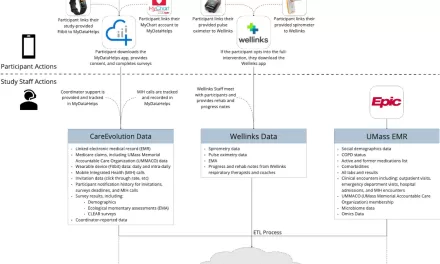Geneva, Switzerland – A groundbreaking study by the Geneva University Hospitals (HUG) and the University of Geneva (UNIGE) has revealed that social media, particularly Twitter (now rebranded X), plays a significant role in the stigmatization of people living with obesity. The study analyzed 53,414 tweets related to obesity published between April 2019 and December 2022, showing that nearly 70% of these tweets conveyed negative sentiments toward individuals affected by obesity.
The study, which was published in the Journal of Medical Internet Research, highlights the growing influence of social media platforms in shaping public opinion, especially when the issue is magnified by the voices of influential figures such as politicians and celebrities. The findings also underscore the growing challenges in addressing obesity, a chronic disease linked to a range of serious health problems, including type 2 diabetes, cardiovascular diseases, and cancers.
Obesity, which has seen a dramatic increase in global prevalence—rising from 4.6% in 1980 to 16% in 2022—also contributes to significant psychological distress, as individuals affected by it face discrimination, societal judgment, and mental health challenges. As the prevalence of obesity continues to climb, understanding the social and public health dynamics surrounding the issue is crucial for developing effective prevention and treatment strategies.
A Negative Narrative Dominates
The analysis, led by Dr. Jorge César Correia, senior resident in the Therapeutic Patient Education Unit at HUG, and supervised by Prof. Zoltan Pataky, revealed that the vast majority of tweets on obesity were negative, accounting for 69.36% of the total. This negativity remained consistent over the years, particularly during key political events or moments involving high-profile individuals. The neutral tweets made up 20.91%, while positive tweets represented only 9.73% of the total.
The tweets were often linked to harmful stereotypes, such as associating obesity with poor life choices, substance abuse, and racial discrimination. This negative portrayal of obesity in public discourse not only perpetuates harmful stereotypes but also has a detrimental impact on the mental health of those living with obesity, further marginalizing them in society.
The Influence of Politicians and Celebrities
One of the most striking aspects of the study is the influence of public figures on shaping the conversation around obesity. According to the study, spikes in negative tweets coincided with remarks by high-profile politicians and celebrities. For example, when overweight public figures were hospitalized for COVID-19, or when the President of the United States made headlines about wanting to lose weight, the amount of critical content on Twitter surged.
The study also noted the impact of anti-obesity campaigns, particularly in the UK, and how such initiatives contributed to negative online discourse. When prominent figures publicly criticize obesity or make light of it, their followers are more likely to adopt similar attitudes, amplifying the stigmatization of those living with obesity.
The Role of Social Media in Public Health
This study brings attention to the broader role of social media in shaping public health messages. With the increasing reliance on digital communication platforms, the findings underscore the need for public figures, including politicians and celebrities, to be mindful of their influence on public opinion and health behaviors. Negative portrayals on social media can have long-lasting effects, not only on the individual mental health of those with obesity but also on society’s attitudes toward addressing this growing health issue.
Dr. Correia and his team utilized advanced AI-driven text classification tools to analyze the tweets, allowing for a nuanced understanding of public sentiment around obesity. Their work provides valuable insights into how digital communications can influence health outcomes, offering guidance for future public health initiatives.
Moving Forward: The Need for Change
The study calls for a more thoughtful approach to discussing obesity in public spaces, particularly on social media. It suggests that greater attention should be given to combating stigmatization and promoting healthier, more compassionate discourse.
With the study’s findings, experts hope to inform the development of better health policies, more effective prevention strategies, and more empathetic treatment approaches that consider the unique challenges posed by social media in shaping public health narratives.
The authors of the study emphasize the need for ongoing research to better understand the evolving role of social media in shaping public attitudes toward obesity, and to work toward fostering a more inclusive and supportive environment for individuals affected by this chronic disease.
For more information on the study, see: Jorge César Correia et al, “Exploring Public Emotions on Obesity During the COVID-19 Pandemic Using Sentiment Analysis and Topic Modeling: Cross-Sectional Study,” Journal of Medical Internet Research (2024).












